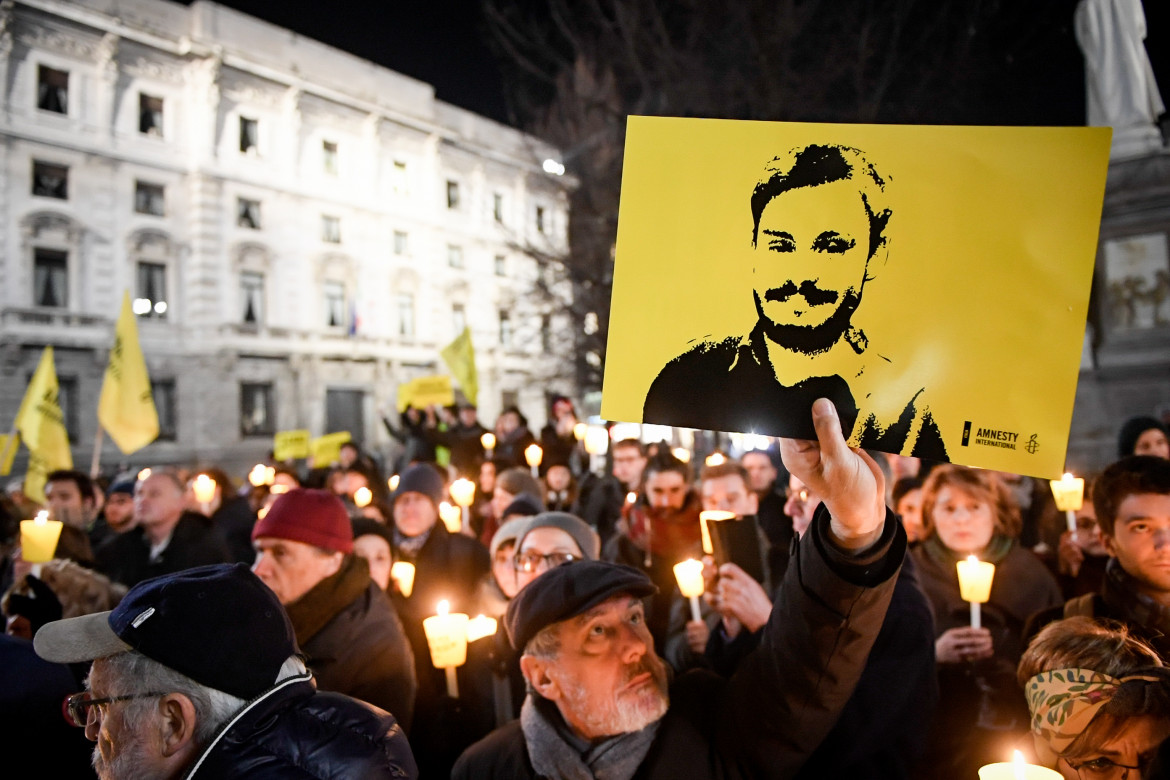Analysis
After two years of solitary battle, the Roman prosecutor closes the Regeni investigation
Two years ago five members of Egypt’s secret services were registered as suspects. Since then, there has only been silence from Cairo and no help from the Italian government.

On Dec. 4, 2018, the Public Prosecutor’s Office of Rome announced that the names of five agents of the NSA, the Egyptian National Security Agency, were now listed in the official register of suspects. This decision gave names to the alleged kidnappers, torturers and murderers of Giulio Regeni, who disappeared in Cairo almost three years before, on Jan. 25, 2016, and was found dead on Feb. 3.
In just over a month, it will be two years since the suspects have been named—the 24-month term beyond which the Code of Criminal Procedure does not allow investigations to continue. This is why on Wednesday, the Prosecutor’s Office announced that it has come close to the end of the investigation into the murder of the young Friulian researcher.
Meanwhile, in Cairo, yet another meeting between the ROS and SCO investigation team and the Egyptian investigators was taking place. It was another in the long series of meetings which have been promising us the moon for years, but have not been able to deliver even a starting point. Starting with the requests that the Prosecutor’s Office included in the letter rogatory of April 2019, which have remained unanswered.
The latest promise dates back to July 1, when chief prosecutor Michele Prestipino, together with the prosecutor Sergio Colaiocco, speaking in a videoconference, asked for quick clarifications and answers.
At the top of the list for the Roman Prosecutor’s Office is the establishment of the domicile of the five suspects and the confirmation of the presence of one of them in Kenya, in August 2017, when he was overheard at a lunch talking about specific details about the disappearance of Giulio.
On July 1, silence reigned in the virtual space that divided the investigators from the two countries, a symbolic representation of the light years of distance between the intentions of one side, to learn the truth, and those of the other side, to cover it up.
The first to speak out on the matter was Erasmo Palazzotto, LeU deputy and chairman of the Parliamentary Commission of Inquiry into Regeni’s death: “This circumstance places the responsibility on the government to exert every type of diplomatic pressure on Egypt. In the absence of an adequate response, we will have to take note and draw the necessary consequences.” So far, no consequences have materialized.
In a hearing before the Commission on June 18, two weeks before the videoconference on July 1, Prime Minister Conte had outlined the government’s strategy: to get respect and cooperation from a friendly position, continuing to maintain diplomatic and commercial relations with Cairo. He was speaking to defend the authorization for the sale to the Egyptian regime of two frigates built by Fincantieri worth 1.2 billion euros, which finally went through.
Two years ago, the entry of the suspects into the register of criminal acts by the prosecutor who was leading the investigations, Pignatone, was welcomed by the Regeni family. With painstaking efforts that had managed to overcome a path fraught with obstacles and silence, the Prosecutor’s Office of Rome had been able to identify at least five NSA officials responsible for the kidnapping.
Their names by themselves are enough to shake the scaffolding of omertà from which the regime of President al-Sisi is built: General Sabir Tareq, Colonels Usham Helmy and Ather Kamal, Major Magdi Sharif and Agent Mahmoud Najem.
They are shaking in fear, because these names show that the theory of the “isolated case,” or—worse—of “a few rotten apples” doesn’t hold water: the five were/are central figures in the Egyptian state machine of social control and physical repression, cogs in the system of the NSA, heir to the dreaded SSIS, the intelligence agency known to every Egyptian from the Mubarak era.
The revolution of 2011 did not wipe it out: it changed its name, but not its ways, and the person who controls it remains the same: the Minister of the Interior.
Originally published at https://ilmanifesto.it/due-anni-di-battaglia-solitaria-la-procura-di-roma-chiudera-le-indagini-su-regeni/ on 2020-10-29
